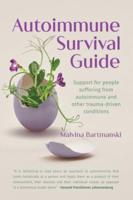Publisher's Synopsis
Incorporating a counseling paradigm has been shown to increase motivation, deepen learning, and sustain progress for clients and families. Counseling in Communication Disorders: Facilitating the Therapeutic Relationship by Cyndi Stein-Rubin and Beryl T. Adler, is an engaging textbook, written in a genuine and lively tone, so that the reader may easily relate to the material. The text provides a practical vehicle for speech-language pathology students, clinicians, clinical supervisors, and instructors to get to know themselves better and to integrate basic counseling attitudes and tools into their diagnostic and therapeutic programs.
Inside Counseling in Communication Disorders, Stein-Rubin and Adler describe the importance of addressing a client's communication challenges by working with the whole person, as a human being, not as a communication disorder. By approaching clients with a counseling attitude that encourages the client's full participation in the treatment process, we then work together in partnership and as a powerful team.
The content, techniques, and exercises within Counseling in Communication Disorders are rooted in evidence-based practice from a variety of psychological, counseling, and coaching approaches, such as Humanistic Counseling, Listening and Language, Narrative Therapy, The Cognitive Behavioral Model (CBT), Solution-Focused Brief Therapy (SFBT), Positive Psychology, Neurolinguistic Programming (NLP), and Mindfulness training.
Counseling in Communication Disorders also includes reflective questions, exercises, and suggestions to reinforce important concepts. To bring the content to life, real-life and clinical scenarios are interspersed throughout the text.
It is well understood that speech-language pathology and audiology clinicians must understand deep listening and how to choose words that will have a positive impact on their client and families, but often overlooked is the personal development of the clinicians themselves. Counseling in Communication Disorders is a comprehensive guide on how to provide the necessary support and encouragement to clients and build self-esteem, while a major focus is the need for the clinicians to work on self before working on other.
Counseling in Communication Disorders: Facilitating the Therapeutic Relationship is the first textbook of its kind to comprehensively cover both sides of the therapeutic relationship. Students and clinicians alike will appreciate this unique approach that addresses not only the counseling attitude that is vital to the growth and progress of clients, but also the self-awareness that guides the personal development of the clinician.
Included with the text are online supplemental materials for faculty use in the classroom.









